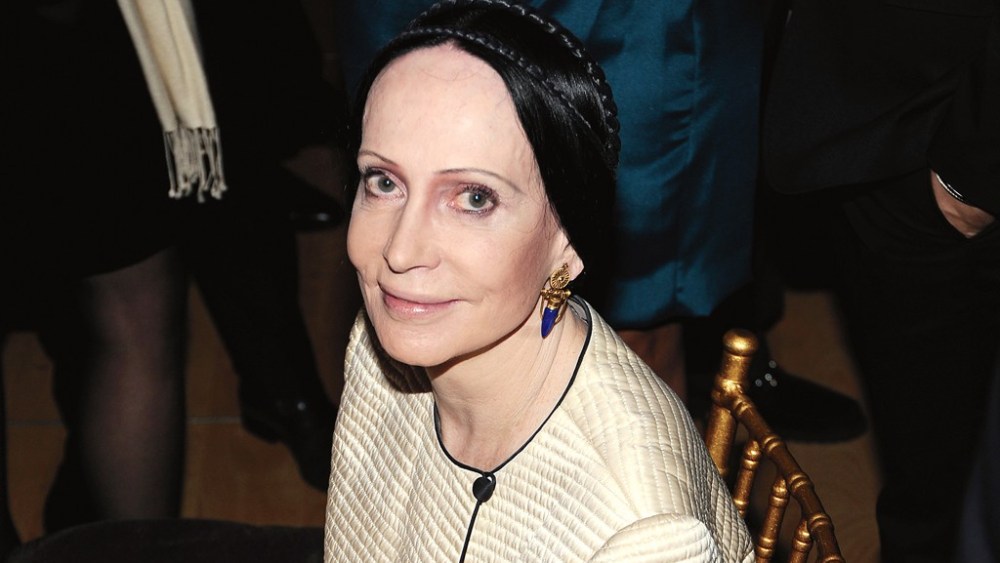Mary McFadden, a pantheon in American design, died Friday at the age of 85 at her home in Southampton, N.Y.
The designer, whose career spanned 70 years, had been in declining health, according to Joan Olden, who had joined McFadden’s company at its inception in 1972.
Plans for a service or memorial have not yet been finalized.
Born in New York to a socialite mother and an affluent cotton broker father, McFadden spent her childhood in Tennessee. After attending the Foxcroft School of Virginia, she continued her studies at Columbia University, Ecole Lubec at the Sorbonne, at the Traphagen School of Design and The New School for Social Research.
An inveterate traveler, McFadden touched down in more than 60 countries and routinely mined those expeditions for design inspiration and colors for her collections. McFadden was raised in a family of travelers. A great uncle Charles Sundance Cutting was the first Western man to visit Tibet in 1935 to 1937.
In her fashion designs, she carved out a niche for herself from the competition by creating handpainted textiles, opulent beading, bejeweled embellishment and signature Mari pleating. In an interview with WWD earlier this year, she singled out her time in Paris as a teenager at the Sorbonne for leaving an indelible impression on her outlook on life.
Not one to be impressed by fame or fortune, McFadden was intrigued by all types of people. Getting into fashion as a career was “inevitable” from her point of view, since she was always interested in how she dressed and how things were constructed. Beyond her intercontinental creations, McFadden broke boundaries in other ways too – namely as the first woman to lead the Council of Fashion Designers of America in the early 1980s. A decade prior she also forged another first by housing her company on West 35th Street instead of following the more well-worn route of Seventh Avenue as generations of other major designers had done. At that time in the struggling city, garment district side streets were somewhat sketchy.
McFadden, whose luminescent complexion was a signature as much as her designs, had a well-rounded understanding of the fashion industry, due partially to her experience working for magazines and in public relations. After meeting the head of Christian Dior at a cocktail party, she informed him that she would like to come in for an interview. The assertive but refined McFadden did just that the following day.
She also had a zeal for marriage, having wed 11 times. Asked for her view on marriage in a May interview with WWD, she described it as “a very dicey operation.” But the designer had said she was glad to have wed 11 times, because “each person was a different experience.” And she hadn’t ruled out the prospect of a twelfth wedding.
A lifelong tennis player and longtime skier, McFadden appreciated athletic competition. But she took the long view in terms of fashion rivals in her heyday. In the interview earlier this year, McFadden said, “I didn’t have any competition. The competition was to stay in business, to be profitable and to be successful.”
She was equally even-keeled about what makes people shop or spend now. “Vanity. That’s always the case,” she said.
McFadden had donated close to 350 pieces from her personal archives to Drexel University in Philadelphia, where the retrospective “Modern Ritual: The Art of Mary McFadden” is currently on view.
After shuttering her namesake company in 2022, McFadden devoted more of her attention to her art. As for what she wanted people to think about when they heard her name, she said, “They will think of my dresses of course. And that I am a damn good tennis player. I am.”
McFadden is survived by a brother, John. She was pre-deceased by another brother, George, and her daughter from her first marriage, Justine Harari.

